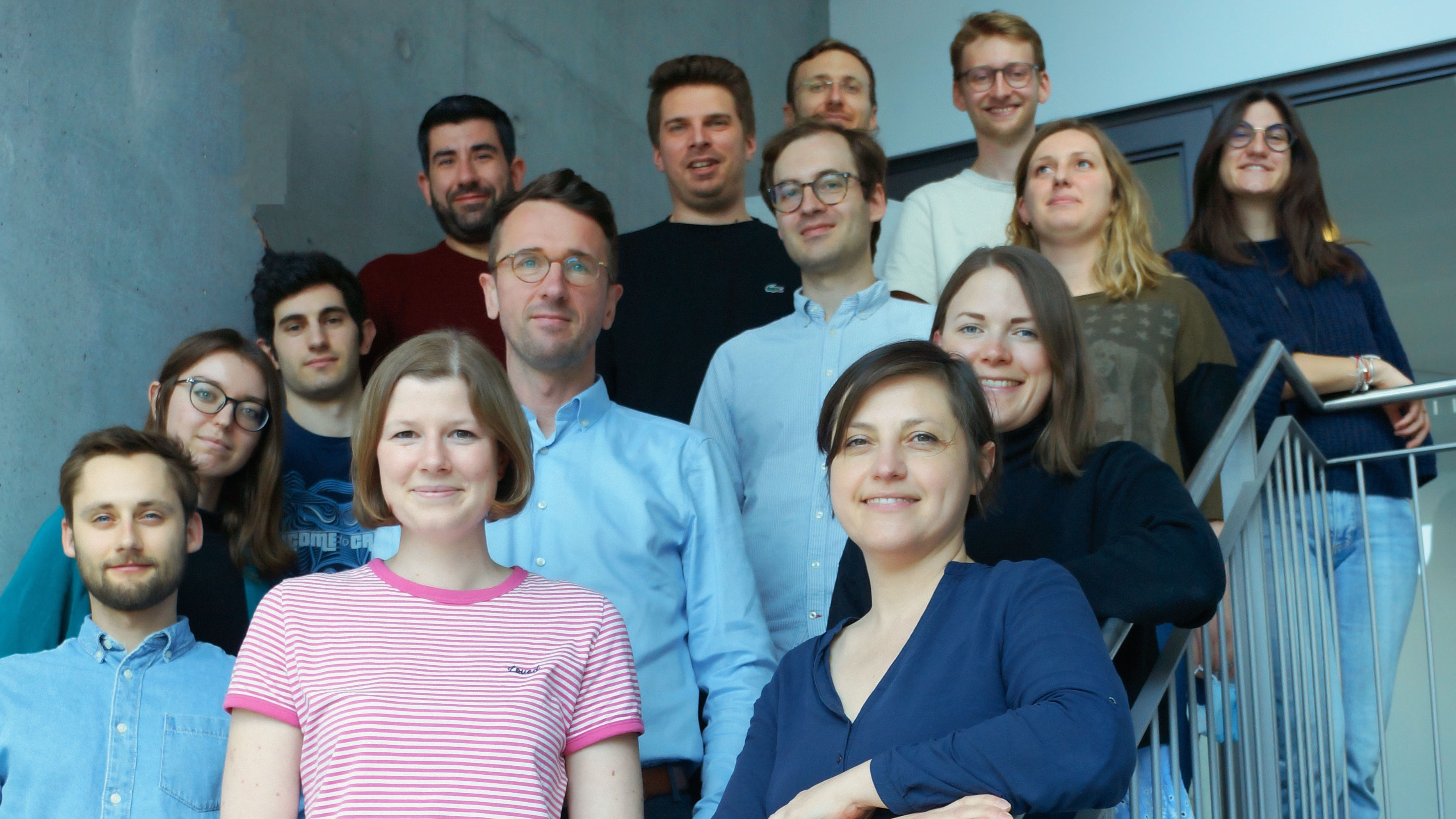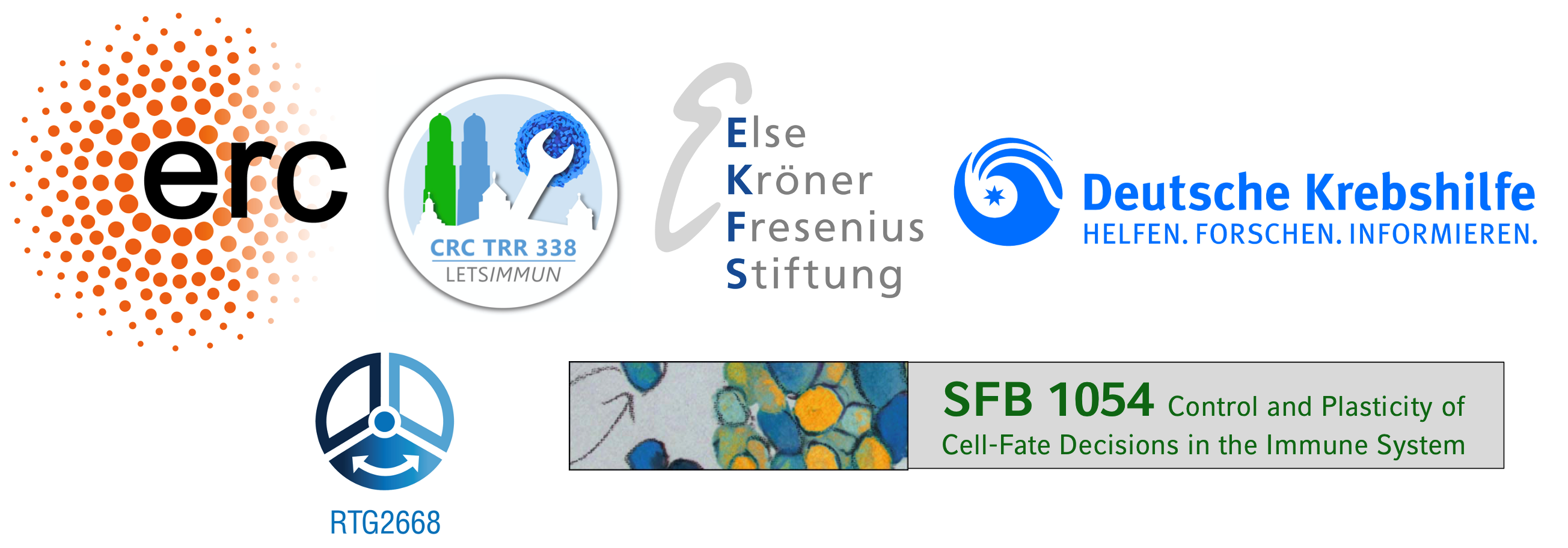

Mapping lymphocytes lineage decisions in vivo
Author: Dr. med. Veit R. Buchholz
The Buchholz Lab investigates the development of immunological memory, starting out from single antigen-specific lymphocytes in vivo and in vitro. Thereby, we break down adaptive immune responses into their most fundamental building blocks. In the past, this unique experimental approach of "single-cell fate-mapping" has shown us that even physiological immune responses to infection do not harness the full protective potential available in every antigen-specific lymphocyte. Our goal is, to make this full potential accessible through tailored vaccination strategies and optimized immunotherapeutic approaches.
Central to all these endeavors is our goal to identify ‘stem-like’ T and NK cells that stand at the origin of all differentiation processes underlying lasting immunological memory in the context of acute and chronic infection, malignancy and autoimmune disease. By identifying key factors that regulate these stem-like lymphocytes, we hope to open up new avenues for effective vaccination, immunomodulation and immunotherapy.
In pursuit of this goal, we currently study the generation and maintenance of inflationary CD8 T cell memory during chronic-latent murine Cytomegalovirus (MCMV) infection, of exhausted CD4 and CD8 T cell immune responses during chronic-active Lymphocytic choriomeningitis virus (LCMV) infection, of exhausted CD8 T cell immune responses directed against malignant disease, of autoimmune CD8 T cell responses in the context of type 1 diabetes and of adaptive-like NK cell responses driven by MCMV infection. Moreover, we study the most fundamental drivers of T and NK cell fate diversification, such as asymmetric cell division or quorum sensing via continuous 2D and 3D imaging in vitro. In the long run, we aim to channel insights from all these endeavors into clinical translation.
In that context, we started a first project aiming to optimize CAR T cell therapy. Moreover, we have recently identified, in collaboration with the laboratory of Axel Kallies, the crucial stem-like CD8 T cell subset and its signature transcription factor, that are essential for driving the proliferative response to PD-1 checkpoint blockade https://www.tum.de/en/news-and-events/all-news/press-releases/details/wie-immunzellen-der-erschoepfung-entgehen(link is external).
We are supported by the European research commission (ERC-Starting-Grant 2020), the Deutsche Forschungsgemeinschaft (SFB 1054, TRR 338 and GRK 2668), the Deutsche Krebshilfe (DKH) and the Else-Kröner-Fresenius Stiftung.
Our work has been awarded the prestigious publication prize from the Else-Kröner-Fresenius-Stiftung (https://www.ekfs.de/aktuelles/presse/publikationspreis-2020)(link is external) as well as the Georges-Köhler-Award from the German Society for Immunology for outstanding young independent researchers (https://onlinelibrary.wiley.com/doi/epdf/10.1002/eji.202170106)(link is external).
*dieser Eintrag ist nur auf Englisch verfügbar*


